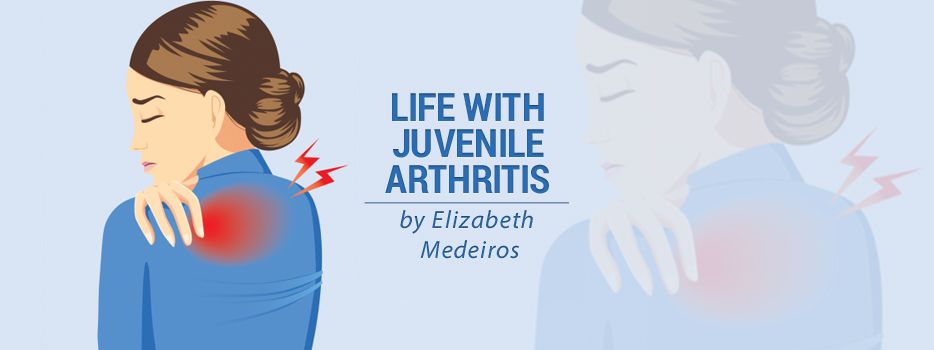I’m probably in the minority, but I loved high school. Those four years were a blast! Some of my favorite memories include participating in National Honors Society events, volunteering at the library, and driving around with my newly licensed friends.
But sometimes I found new experiences to be intimidating and even overwhelming. Having juvenile arthritis sometimes made rites of passage challenging or necessitated accommodations. These were the things I found difficult, particularly around the ages of 16 to 18.
1. Learning to drive may be painful.
Many people with arthritis can drive, but find it painful for a variety of reasons. Being sedentary can be painful for someone with arthritis, especially if the position they’re in is aggravating an inflamed joint. I know many adults who choose their cars solely on how comfortable the seat is for that reason.
Teens may find driving to be generally uncomfortable, so be patient. It might be helpful to let them try out different driver seat cushions and steering wheel covers to see if they help with comfort. For longer drives, make a plan to switch halfway with another driver, or at least stop to stretch. Your child may also prefer car pooling or even using public transport if they find driving too painful.
2. Working part time may feel impossible.
I remember all my friends running out to get part-time jobs the moment they turned 16. But when you don’t have a high school diploma yet, it can be hard to find work that doesn’t involve flipping burgers or stocking shelves. While it’s reasonable to expect your teenager to take on that new responsibility, please keep in mind that working at stores and restaurants is hard work. Being on your feet for several hours at a time, rushing around, and doing other tasks can be draining for people in perfect health, nevermind a teen with chronic pain.
I’ve written about this topic in the past, offering tips for finding arthritis-friendly employment. Ultimately, I recommend talking with your teen and figuring out a solution that works well for your family. It’s also a great opportunity to teach your teen about employee rights.
3. Missing classes may be harder.
While taking days off was always difficult, I found it particularly stressful during my later high school years when I was getting ready to take the SATs and apply to schools. One year, my neck flared awfully a week before pre-SATs, to the point that I could barely move. I tried to tough it out and go to school, but spending time at home and resting helped me feel better faster. Thankfully, I was ready to take the test the next week!
If your student is planning to apply to college, they may be reluctant to take time off school to care for their health. But remind them that their health always needs to come first, or they’ll pay for it later. As much as possible, encourage them to stay in touch with their teachers and warn them about upcoming absences. My teachers appreciated the warning and gave me my homework in advance. Also, always provide doctor notes after an absence!
4. Their transition to adult care may not be smooth.
Transitioning from a pediatric rheumatologist to an adult rheumatologist is a big deal. Some teens may be reluctant to let go of their doctors, especially after years of being treated for JA. But all things must pass, and transitioning to adult-centered care often comes around ages 16-22 (but may vary).
If you’re lucky, your child’s hospital may offer a transition program. Not only does it make the process of finding a new doctor easier, but it almost guarantees that the new doctor is used to treating young adults.
If you’re not so lucky, ask for referrals from the pediatric rheumatologist and do some homework. Many doctors have profiles on their clinic’s website where you can learn more about their specialties, and sometimes you can find patient reviews. (Keep in mind that people are more likely to post if they have a negative review). Hopefully, you’ll be able to find a physician who is used to working with young adults.
It’s important that you remind your child that it’s OK if they don’t jive with the first doctor they see. If they felt the doctor dismissed their complaints, didn’t seem familiar enough with their condition, or rushed them, let them know they can go see other doctors.
In the end, it depends …
That said, not everyone will struggle with these challenges. I know people with arthritis who love to drive, prefer working retail, and many young people who had excellent transition experiences. But every teen with arthritis will face their unique challenges while coming of age, and will need their parents or other trusted adults to support them.
***
Note: Juvenile Arthritis News is strictly a news and information website about the disease. It does not provide medical advice, diagnosis, or treatment. This content is not intended to be a substitute for professional medical advice, diagnosis, or treatment. Always seek the advice of your physician or other qualified health provider with any questions you may have regarding a medical condition. Never disregard professional medical advice or delay in seeking it because of something you have read on this website. The opinions expressed in this column are not those of Juvenile Arthritis News, or its parent company, BioNews, and are intended to spark discussion about issues pertaining to juvenile arthritis.

